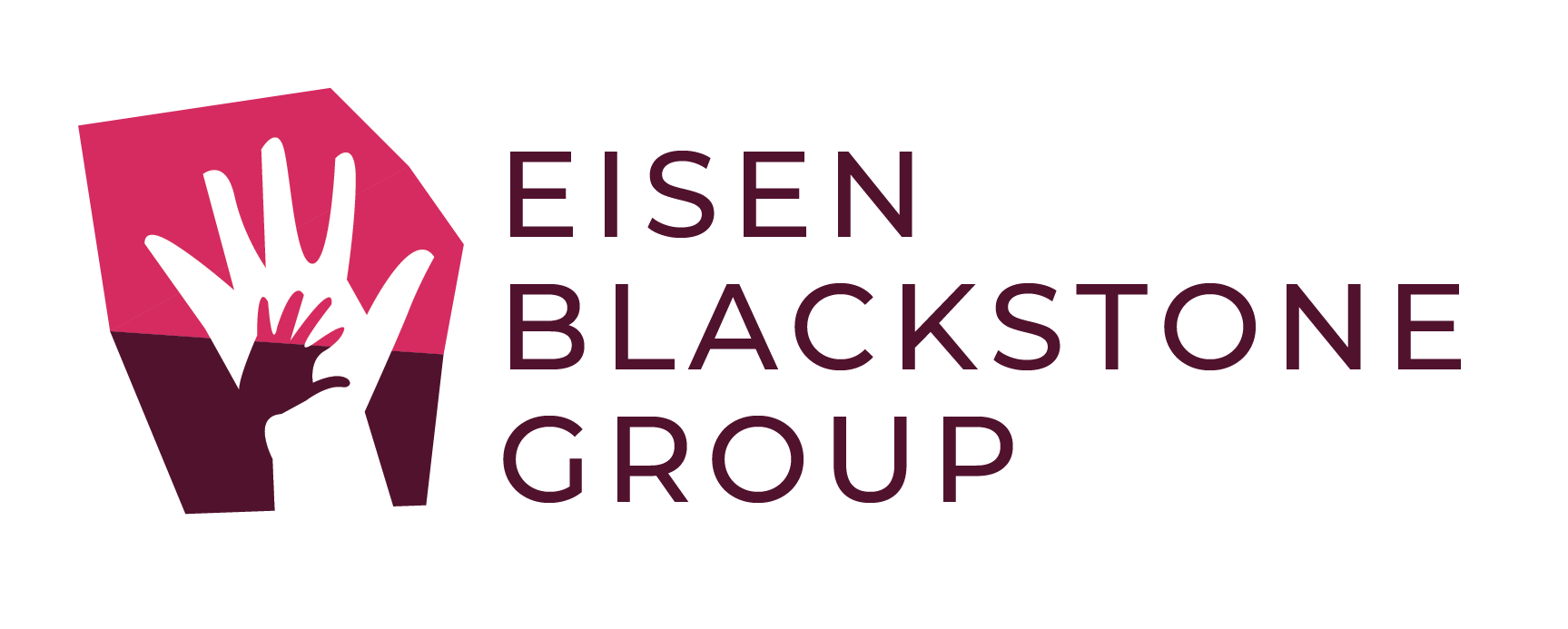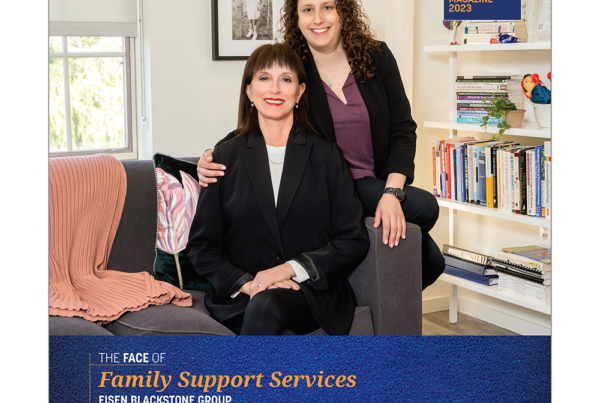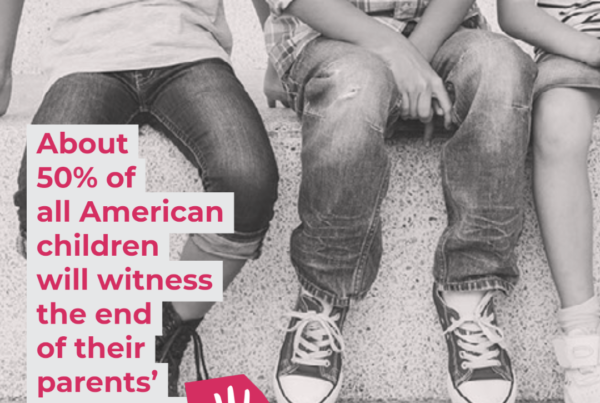An interview with Pirie Jones Grossman
Originally published in Authority Magazine
Parenting is challenging. We all try so hard to give our all to our children. We desperately want them to feel loved and connected. But somehow there is often a disconnect. Perhaps it’s a generational thing, or that we don’t seem to speak the same language as our children, or just all of the “disconnection” that our kids are dealing with in today’s frenetic world. What are steps that parents can take to help their children feel loved and connected? As a part of our series about “How to Raise Children Who Feel Loved and Connected” we had the pleasure to interview Roberta Eisen.
Roberta Eisen, M.Ed., LPC, NCC, is a master practitioner in coaching, mediation, and other support services for families. Over the past three decades, she has assisted parents and children through the transitions of divorce and into their future with an emphasis on child safety and wellness. She created and implemented the parenting education program for Family Courts in Pittsburgh, Pennsylvania, and upon relocation to the D.C. metro area served as consultant to the American Psychological Association; and created the Program for Agreement and Cooperation in Contested Custody Cases (PAC Program) for Family Court of the Superior Court of the District of Columbia.
Thank you so much for joining us! Before we dive in, our readers would love to get to know a bit about you. Can you tell us your “childhood backstory”?
Igrew up in Pittsburgh, Pennsylvania, and knew little of the world outside of my community.
My father was a German immigrant and my parents were fixed up by friends and married shortly thereafter in Jacksonville, Florida. Together they decided to return to Pittsburgh where my mother already had a job. My father had been an accountant in Dresden, Germany, and it was not long before he was invited to join a wholesale novelties company and eventually purchase the business.
As a child I felt a bit like an outsider. I was different. I had an educated mother and a father with a German accent.
Can you share the story about what brought you to this specific point in your career?
I have always wanted to build a practice with one of my daughters and fortunately, our paths and lives came together when I moved to Washington, D.C. in 2005. It is any mother’s dream to have a vision you can share with your child, and I’m excited that my daughter Carly and I can help families navigate transitions at Eisen Blackstone Group.
Ok, thank you for that. Let’s now jump to the core of our discussion. This is probably intuitive to many, but it would be beneficial to spell it out. Based on your experience or research, can you explain to us why it is so important to forge a strong connection with our children?
Parents and primary caregivers are the most important people in a child’s world and for their ultimate growth and development. If a toddler has a secure baseline or attachment, they can be free and curious to explore their environment and learn safely about the world around them. Children with secure attachments are more confident about exploring their world and thus more likely to be open to learning new things all the time.
What happens when children do not have that connection, or only have a weak connection?
Children that have been shown little attachment can display a variety of negative behaviors, including high levels of hostility, unprovoked aggression and withdrawal. They can unfortunately become emotionally distant and often behave in negative ways.
Do you think children in this generation are less likely to feel loved and connected? Why do you feel the way you do?
As technology replaces human contact and interaction, children are more likely to feel isolated and alone. This persistent distress in turn contributes to their internal sense of disorder and has an ongoing negative impact on their ability to self regulate.
We live in a world with incessant demands for our time and attention. There is so much distraction and disconnection. Can you share with our readers 5 steps that parents can take to help their children feel loved and connected? Please include examples or stories for each, if you can.
- Talk with your child; talk at their level and from their perspective. Teach them love and respect and be loving and respectful toward them. It can take time and patience to get into a child’s world, and sadly parents are often overwhelmed with their work-life balance. Your children deserve your time and attention.
- Listen to what your child is saying, but listen from their ears. Teach them compassion and empathy by modeling the importance of their words, but always clarify the difference between their voice and your role as a parent. Let them know in a kind, respectful, teachable way that your job as a parent is to be the tie breaker whenever there is not mutual consent amongst the family.
- Teach your children to give to others who are less fortunate than they are. Teach them to be compassionate by allowing them to experience compassion at a young age, ideally through hands-on volunteering in a safe environment. Once they experience the impact of giving to others, they can truly understand it.
- Develop a healthy parenting, or co-parenting, relationship and learn to negotiate your differences. Children who grow up in high-conflict families are at elevated risk for anxiety, depression and overall poor adjustment.
- Be available for your children unconditionally, but teach them the difference between right and wrong. Teach your children that there is always a space in between, too; life is not linear and sometimes we have to learn to be flexible, as hard as it may seem. Allow your children to experience flexibility so they can understand the benefits of compromise.

How do you define a “good parent”? Can you give an example or story?
A good parent is someone who loves their children first and then themselves. Parenting is a very selfless job, but some parents are very selfish people. What a sad conundrum. Childhood is a priceless period of time that goes by very quickly and cannot be replicated. If your child’s needs are not met when they are little, they may never be.
For Example: I always told my children to always tell the truth because it was much easier than a lie. A lie is a story that one has to create to try to get their needs met in other ways. When you tell a lie, you are bound to need another story and yet another, when the truth is much easier. Anything you teach your children is a lesson you put in their heads. As parents, you are their lifeline and guide in the world.
How do you inspire your child to “dream big”? Can you give an example or story?
Teach your children to dream and listen to their own heart as a guide through life. Offer some value and understanding of spiritual guidance. The belief in a high power or being that teaches them to be happy and to be accountable for their own actions and their own words is supremely valuable. Believe in your children.
How would you define “success” when it comes to raising children?
To me, it means looking at your children with pride and love and watching them grow and develop into happy and successful individuals. The benefits of parenting come much later in life when your children can appreciate the guidance and support that you gave to them growing up. Reaping the benefits of good parenting is heartwarming and gratifying.
This is a huge topic in itself, but it would be worthwhile to touch upon it here. What are some ideal social media and digital habits that you think parents should teach to their children?
Limit the amount of technology each day and never allow children to digest social media at least an hour and a half prior to bedtime. The digital world is addictive and distracting and can take us away from many of the natural beauties of life, like the outdoors, our families, and the simple pleasure of relaxation.
What are your favorite books, podcasts, or resources that inspire you to be a better parent? Can you explain why you like them?
I was raised during the Mister Rogers era in Pittsburgh and many of the lessons that I learned about emotions were from him. His quotes have created a beautiful legacy about the importance and value of every child in the world.
“Hi, you are my friend, you are special.” We have a lot that we can learn from children, if we can just take the time to stop, listen, and value them as individuals.
Can you please give us your favorite “Life Lesson Quote”? Can you share how that was relevant to you in your life?
Learn that it is okay for someone else to have the last word, even when you disagree with them.
Growing up I knew that my mother always had the last word in an argument; at some point there needs to be a tie breaker if and when a parent and a child disagree. Establish rules and boundaries in your role as a parent and be consistent and reliable in your actions. Everyone needs a roadmap through life.
You are a person of great influence. If you could inspire a movement that would bring the most amount of good to the most amount of people, what would that be? You never know what your idea can trigger. 🙂
The school curriculum should be revised to include empathy and negotiation skills. Teaching children to solve their problems and differences in non-aggressive ways will be of profound benefit throughout their lifetime.
Thank you so much for these insights! This was so inspiring!
About The Interviewer: Pirie is a TedX speaker, author and a Life Empowerment Coach. She is a co-host of Own your Throne podcast, inspiring women in the 2nd chapter of their lives. With over 20 years in front of the camera, Pirie Grossman understands the power of storytelling. After success in commercials and acting. She spent 10 years reporting for E! Entertainment Television, Entertainment Tonight, also hosted ABC’s “Every Woman”. Her work off-camera capitalizes on her strength, producing, bringing people together for unique experiences. She produced a Children’s Day of Compassion during the Dalai Lama’s visit here in 2005. 10,000 children attended, sharing ideas about compassion with His Holiness. From 2006–2009, Pirie Co-chaired the Special Olympics World Winter Games, in Idaho, welcoming 3,000 athletes from over 150 countries. She founded Destiny Productions to create Wellness Festivals and is an Advisory Board member of the Sun Valley Wellness Board.In February 2017, Pirie produced, “Love is Louder”, a Brain Health Summit, bringing in Kevin Hines, noted suicide survivor to Sun Valley who spoke to school kids about suicide. Sun Valley is in the top 5% highest suicide rate per capita in the Northwest, prompting a community initiative with St. Luke’s and other stake holders, to begin healing. She lives in Sun Valley with her two children, serves on the Board of Community School. She has her Master’s degree in Spiritual Psychology from the University of Santa Monica and is an Executive Life Empowerment Coach, where she helps people meet their dreams and goals! The difference between a dream and a goal is that a goal is a dream with a date on it!




